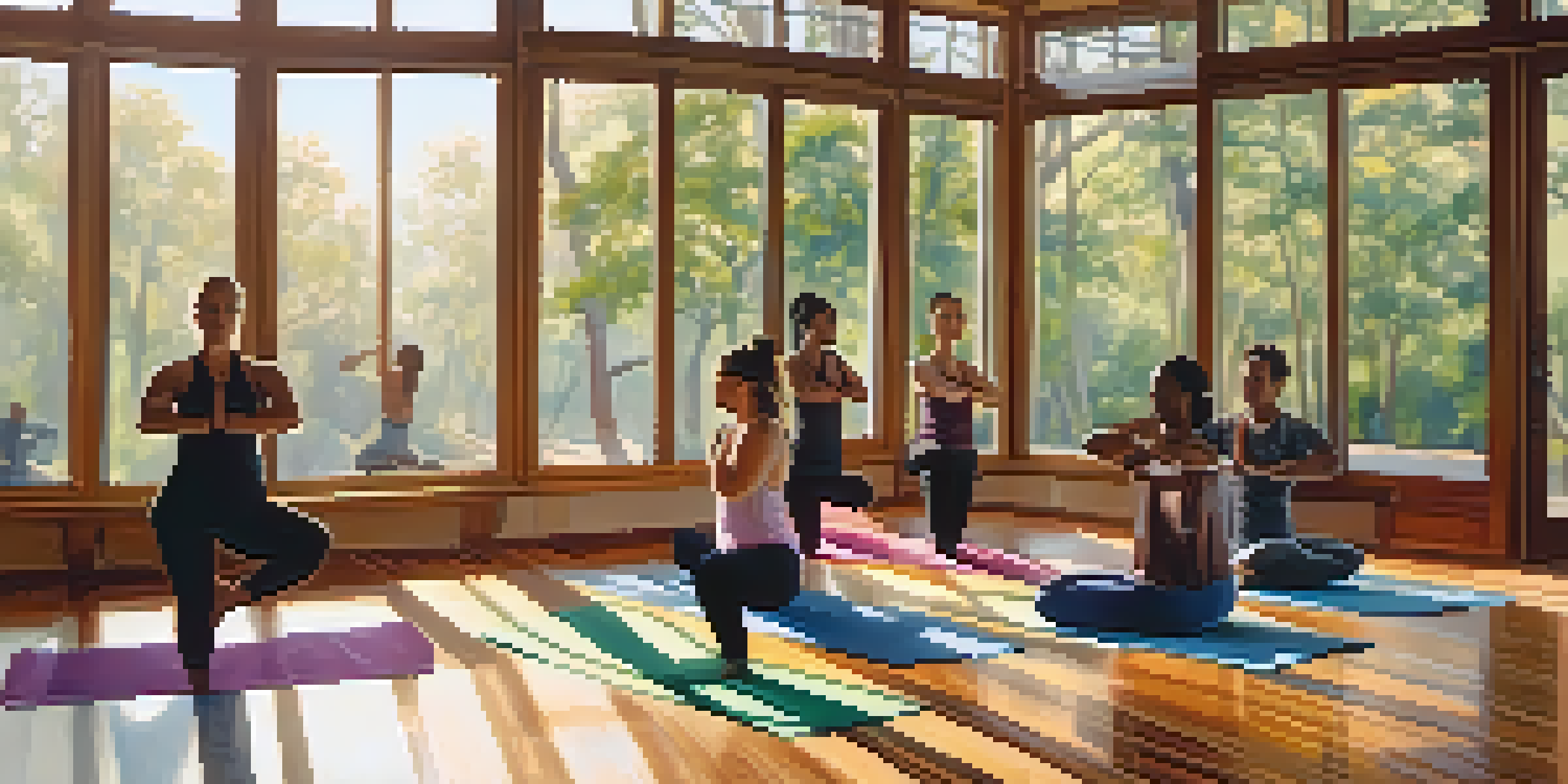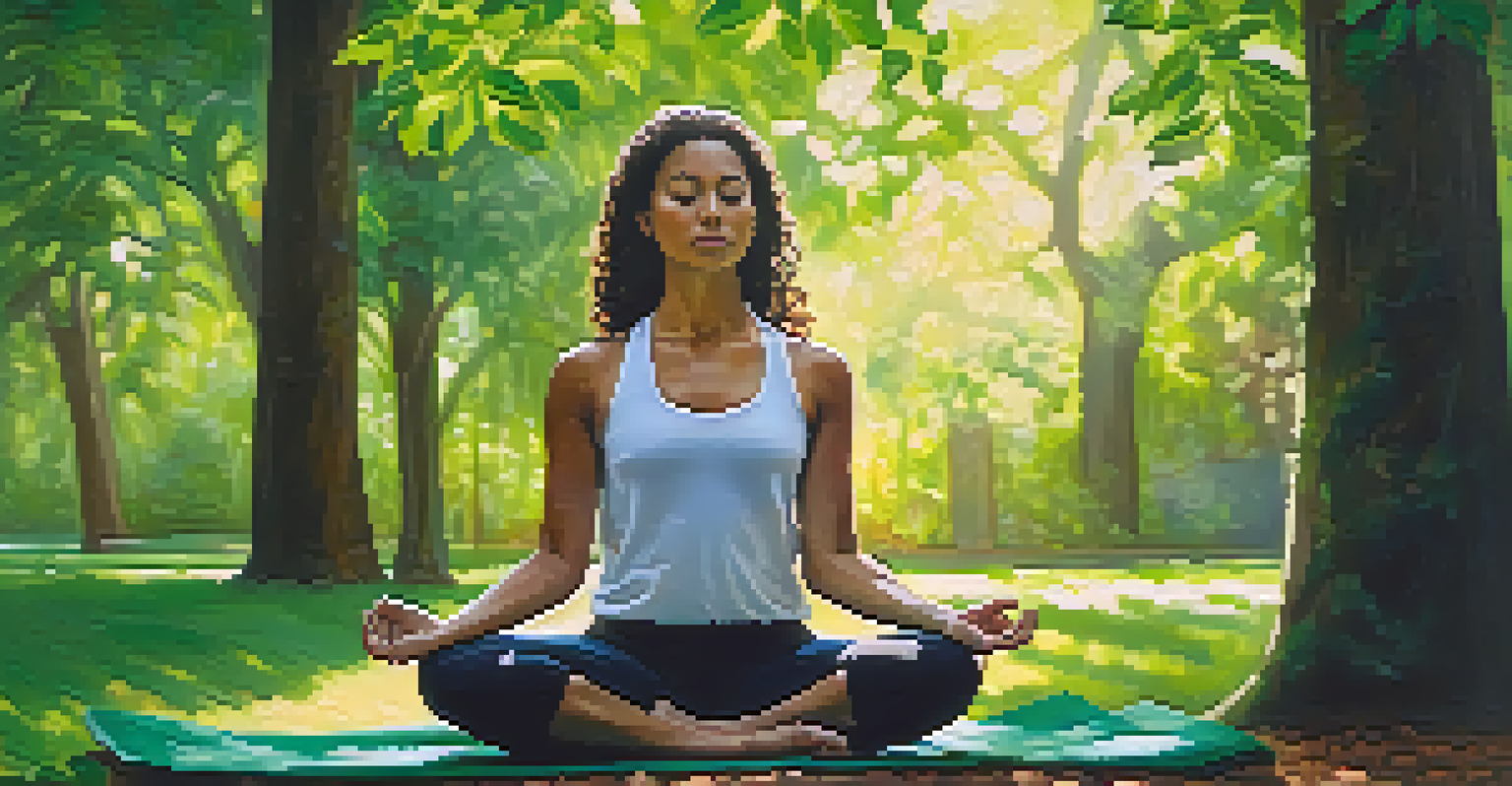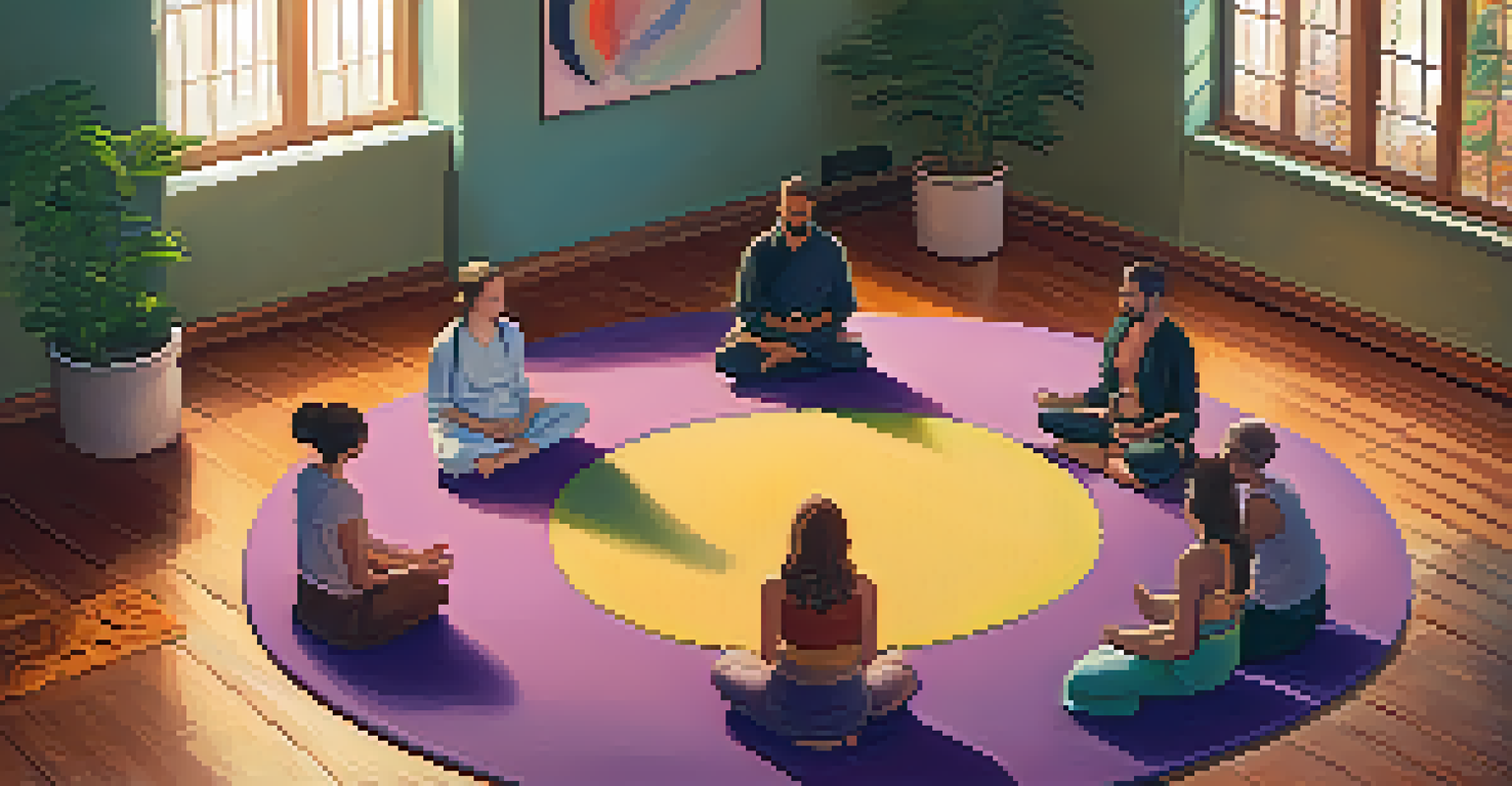The Role of Meditation in Building Resilience Through Yoga

Understanding Resilience and Its Importance
Resilience is our ability to bounce back from challenges and stress. It's like a rubber band that stretches but doesn't break under pressure. In today's fast-paced world, cultivating resilience is essential for mental and emotional well-being.
The greatest glory in living lies not in never falling, but in rising every time we fall.
Many people face various life challenges, from work stress to personal loss. Building resilience helps us navigate these hurdles more effectively, allowing us to maintain balance and perspective. It’s not about avoiding difficulties but learning to rise above them.
Ultimately, resilience can be nurtured through various practices, including yoga and meditation. These practices provide tools that help us develop a stronger mindset, enabling us to face life’s ups and downs with grace and strength.
The Intersection of Yoga and Meditation
Yoga and meditation often go hand in hand, creating a powerful duo for personal growth. While yoga focuses on physical postures and breathing, meditation emphasizes mental clarity and mindfulness. Together, they create a holistic approach to well-being.

Think of yoga as the body’s preparation for meditation. The physical practice helps release tension, making it easier to settle into a meditative state. This connection allows us to cultivate a deeper awareness of our thoughts and feelings.
Resilience: Bounce Back Stronger
Resilience allows us to effectively navigate life's challenges and maintain emotional balance.
When we engage in both practices, we enhance our ability to respond to life's challenges. This synergy fosters a sense of inner peace and stability, which is crucial for building resilience.
How Meditation Enhances Self-Awareness
Meditation is a powerful tool for increasing self-awareness, a key component of resilience. By taking time to sit quietly and observe our thoughts, we can better understand our emotional triggers and responses. This awareness is the first step in learning how to manage stress effectively.
Resilience is not about avoiding the storm, but learning to dance in the rain.
As we meditate regularly, we become more attuned to our mental habits and patterns. This insight allows us to recognize negative thought cycles and replace them with positive affirmations. Self-awareness fosters an understanding of our strengths and weaknesses.
Ultimately, greater self-awareness through meditation empowers us to make better choices when faced with adversity. It helps us respond thoughtfully rather than react impulsively, enhancing our resilience.
Breath Control: The Bridge to Resilience
Breath control, or pranayama, is an essential aspect of both yoga and meditation. By focusing on our breath, we can calm our minds and reduce stress levels. This practice not only helps ground us but also equips us to handle challenging situations with a clearer mind.
When we practice controlled breathing, we activate the body's relaxation response. This physiological change reduces cortisol levels, which are often elevated during stressful times. Lowering stress enhances our resilience by allowing us to approach problems with a calm demeanor.
Yoga and Meditation: A Powerful Duo
Combining yoga and meditation enhances our overall well-being and builds a deeper sense of inner peace.
In moments of anxiety or overwhelm, returning to our breath can be a quick and effective tool. This simple yet powerful practice helps us regain control, reinforcing our ability to navigate difficulties.
Building Emotional Regulation Through Meditation
Emotional regulation is the ability to manage our emotional responses effectively. Meditation plays a significant role in this process by helping us observe our feelings without judgment. This practice encourages a healthier relationship with our emotions, making it easier to cope with stress.
When we meditate, we learn to create space between our feelings and reactions. Instead of being swept away by intense emotions, we can acknowledge them and choose how to respond. This skill is vital for maintaining resilience in challenging situations.
As we continue to practice meditation, our emotional responses become more balanced. This improved regulation allows us to face adversity with a sense of control and composure.
The Community Aspect of Yoga and Resilience
Participating in yoga classes often fosters a sense of community and connection. This social support is crucial for building resilience, as it provides a network of encouragement during tough times. Sharing experiences with others can make challenges feel less isolating.
Engaging with a community of like-minded individuals who practice yoga and meditation cultivates a sense of belonging. This connection not only enhances our commitment to the practices but also reinforces our emotional well-being. Together, we can inspire and uplift each other.
Community Strengthens Resilience
Engaging with a supportive community through yoga fosters connection and shared resilience during tough times.
When we support one another, we strengthen our collective resilience. The shared journey of growth and healing creates a powerful foundation for overcoming life’s challenges.
Integrating Meditation and Yoga into Daily Life
Incorporating yoga and meditation into our daily routines doesn’t have to be daunting. Even short sessions can significantly impact our resilience levels. Finding a few minutes each day for these practices can create lasting benefits for our mental health.
Consider starting with just five minutes of meditation each morning or a short yoga flow before bed. These moments of mindfulness can set a positive tone for the day or help us unwind and reflect. Consistency is key, and small changes can lead to substantial outcomes.

As we make meditation and yoga a regular part of our lives, we build a solid foundation for resilience. Over time, we’ll find ourselves better equipped to handle whatever life throws our way.